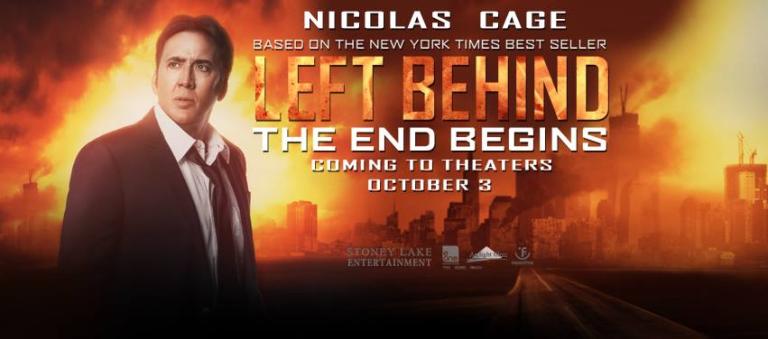Can a conservative evangelical Christian who holds the personal theological conviction that homosexual behavior is sinful, still support civil marriage equality?
That’s what the folks at Evangelicals For Marriage Equality are arguing, and I wholeheartedly agree. If you are a conservative evangelical who is not affirming of same sex marriage theologically, I hope you’ll consider these reasons why it is still possible for you to support civil marriage equality among your fellow citizens:
1. The United States is not a theocracy where the church rules over society– it is a religious neutral republic.
 As such, one need not insist that their particular religious convictions be enshrined in laws that are forced upon others. Just as Evangelicals do not want to live under Sharia Law, the rest of the country need not be forced to live under Evangelical Law. The reasonable thing to do is to step back and say, “I’ll hold to my personal religious conviction, but I’m not going to force everyone to hold to it.”
As such, one need not insist that their particular religious convictions be enshrined in laws that are forced upon others. Just as Evangelicals do not want to live under Sharia Law, the rest of the country need not be forced to live under Evangelical Law. The reasonable thing to do is to step back and say, “I’ll hold to my personal religious conviction, but I’m not going to force everyone to hold to it.”
There are all sorts of areas where evangelical Christians hold to a different view than what is legal in secular society– we all do. You’d believe that divorce for reasons other than adultery is wrong, or that remarriage after such a divorce would be wrong– yet we don’t insist there be laws against people getting divorced or remarried. Likewise, my tradition believes it is a sin to use violence against an enemy, but we’re not trying to repeal the second amendment– we leave our conviction to be a matter of discipleship we handle in church. That’s how this religious freedom thing works.
One can remain a good evangelical while also voting and supporting broad laws that make everyone equal, without abandoning their personal convictions and the convictions of their faith tradition.
2. There is a difference between religious marriage and civil marriage.
As a minister, when I sign a marriage license to signify that I have officiated a marriage, I must check one of two boxes: religious or civil. Obviously, as a Christian member of the clergy, I check the “religious” box which indicates I married the couple under the authority of my own faith tradition, just as other members check that same box to signify they officiated the marriage in accordance with theirs.
Marriage equality laws are not changing this kind of marriage– we are all still free to abide by our own individual faith traditions whether affirming or nonaffirming. Instead, marriage equality is an argument for civil marriage equality– something that is already under the jurisdiction of the religious-neutral government. One can still be true to a faith tradition that will not recognize same sex marriages while also holding to the position that civil marriages– the realm of religious neutral government– should be open to everyone. Nowhere in scripture, not on any page or hidden in any verse, is civil marriage defined– which means it is entirely permissible for an evangelical to support the government ensuring that civil marriage is equal for all, while religious marriages remain under the jurisdiction individual faith traditions. No one in America is forcing a religious tradition to “change the definition” of religious marriage– we are simply asking the religious neutral government to change the way it defines civil marriage.
3. Supporting civil marriage equality is the option that is most faithful to the biblical imperative of seeking justice.
The way our society is structured has left many important benefits that can only be accessed through obtaining a civil marriage. LGBT couples in states that do not have civil marriage equality are currently unable to access these benefits. Many of these are benefits that you or I take for granted, such as being able to visit a sick spouse in the hospital without restriction or being hassled for “not being family,” inheritance issues, joint insurance, etc. Ensuring that all individuals under a religious neutral government are treated equally is the just and right thing to do– even if you don’t happen to agree, like, or approve of who they are or the lives they live. We are called to seek justice– and civil marriage equality for LGBT couples is just.
4. Civil marriage equality expands the reach of all the good things we say that marriage brings to society.
It’s long been argued that marriage is good for society, and I agree. In fact, culture would benefit if Christians were even more influential in encouraging everyone– gay or straight– to commit to lives of monogamy and fidelity. Healthy marriage promotes healthy citizenship, is shown to lead people to engage in healthier lifestyle habits than when single, prevents the spread of STD’s in society (assuming fidelity), and is overall good for the individual and good for the culture.
If you truly believe that marriage is a key institution which promotes stability in culture, we must encourage more of it, not less. Supporting civil marriage equality and actively encouraging people to live lives in healthy marriages, benefits everyone in society.
5. Civil marriage equality is a mechanism to help give a family to millions of children who are without one.
Promoting civil marriage equality is an actual, tangible way to make sure more orphans– both here and abroad– find loving homes. As a dad by way of adoption (one who was a solid evangelical at the time) I can tell you the exact day and time I became a supporter of civil marriage equality: I was sitting in an orphanage and girls were crying– literally begging me— to go home and find families for them. I remember a quiet voice that gently whispered to my conscience: “Ben, if you’d rather these girls sit in this hell-hole than grow up with same gendered parents, well, then there’s seriously something $@#!% wrong with you.”
And, the voice was correct– which was why when I was still solidly evangelical, I switched sides and became a vocal marriage equality supporter. With thousands of children needing homes and the only thing standing in the way of them getting a family is a civil marriage license, Evangelicals ought be major supporters of civil marriage equality as a way of supporting orphans.
…
Civil marriage equality is in the best interest of all society, and in my opinion, everyone– whether affirming or not– should support it. We are not a theocracy, and as Christians we should not be insisting that our particular theology on any given subject become the law of the land. Instead, we must be people who value both our right to practice and live our religious convictions while simultaneously valuing that this only works when everyone else in society can too.
For more on this subject, please visit Evangelicals For Marriage Equality.































